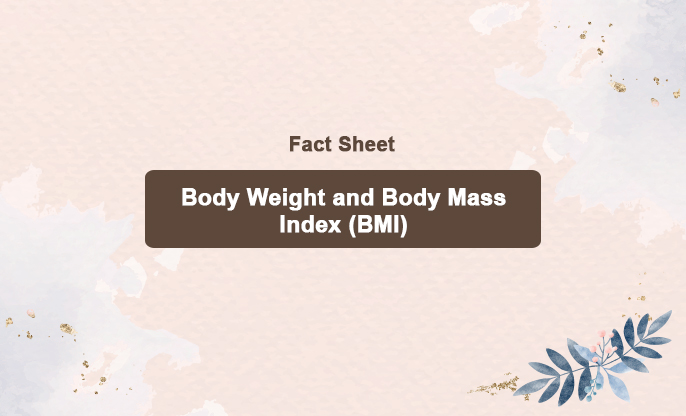
What is this test?
Body mass index (BMI) is a measure used to determine body fat based on an individual's height and weight, applicable to adult men and women.
For adults, a healthy weight is defined by the appropriate body weight relative to height, calculated as the body mass index (BMI). Individuals with a BMI between 25 and 29.9 are considered overweight, indicating they have more body weight than is ideal for their height. Those with a BMI of 30 or above are classified as obese, generally having a significant amount of body fat compared to their height. A higher BMI is associated with an increased risk of various health issues, including heart disease, high blood pressure, type 2 diabetes, gallstones, osteoarthritis, sleep apnea, and certain cancers (such as colon, breast, endometrial, and gallbladder).
While BMI is a useful tool for most men and women, it does have limitations:
It may overestimate body fat in athletes and individuals with a muscular build.
It may underestimate body fat in older adults and those who have lost muscle mass.
How is it done?
BMI is calculated by dividing an adult's weight in kilograms by the square of their height in meters.
Is this routine or specific?
BMI is generally considered a routine measurement rather than a specific test. Here's why:
Routine Measurement:
Regular Health Check-Ups: BMI is commonly calculated during regular health check-ups and physical examinations to assess an individual's weight status and overall health.
Preventive Care: It is used as part of routine preventive care to identify individuals who may be at risk for weight-related health issues.
Public Health Screening: BMI is often used in public health screening programs to monitor and address obesity trends within populations.
Specific Situations:
Weight Management Programs: In weight management or nutritional counseling programs, BMI is specifically measured to monitor progress and adjust treatment plans.
Clinical Assessments: For patients with conditions related to or affected by body weight (e.g., cardiovascular diseases, diabetes), BMI might be specifically calculated to help guide treatment decisions.
Research Studies: In clinical research, BMI is frequently measured to study its correlation with various health outcomes.
When should it be done?
The frequency of BMI calculation depends on individual health status, risk factors, and specific health goals. Here are general guidelines for how often BMI should be calculated:
General Population:
Annual Health Check-Ups: For most adults, BMI should be calculated at least once a year during routine health check-ups. This helps monitor any significant changes in weight status and assess overall health.
High-Risk Individuals:
More Frequent Monitoring: Individuals at higher risk for weight-related health issues, such as those with a family history of obesity, cardiovascular disease, diabetes, or other related conditions, may benefit from more frequent BMI assessments. This could be every 3 to 6 months, as recommended by their healthcare provider.
Specific Health Goals or Programs:
Weight Management Programs: For those actively engaged in weight loss or weight management programs, BMI may be calculated more frequently, such as monthly or quarterly, to monitor progress and make necessary adjustments to the program.
Medical Conditions: Individuals with medical conditions that are affected by body weight (e.g., hypertension, type 2 diabetes, hyperlipidemia) may need more frequent BMI assessments, as advised by their healthcare provider.
Children and Adolescents:
Routine Pediatric Visits: For children and adolescents, BMI should be calculated during regular pediatric visits, typically once a year. This helps track growth patterns and identify any potential issues related to weight.
Pregnant Women:
Prenatal Visits: While BMI is not typically used to monitor weight gain during pregnancy, pre-pregnancy BMI can be useful for determining appropriate weight gain ranges. BMI should be assessed before or early in pregnancy and monitored according to prenatal care guidelines.
Elderly Adults:
Regular Health Assessments: For older adults, BMI should be calculated during regular health assessments to monitor changes in weight that could impact overall health and mobility.



















